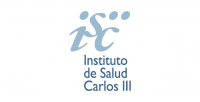Searching for genomic-phenomic biomarkers of psychosis: analysis of the offspring of affected parents and their 3-generations pedigrees from the PAFIP-FAMILIES cohort.
Objectives: The present project aims to generate knowledge on the genetic factors and mechanisms that explain why schizophrenia spectrum disorders (SSD) tend to be transmitted among people from the same family. Identifying such factors is crucial for understanding the disorders' origin and promoting prevention and early care strategies. Through a family-based and high-risk approach, we propose to investigate the combined burden of common and rare genomic variants in affected pedigrees and to analyse the phenotypic correlates of these variants. With this approach, we expect to uncover SSD's biological insights and identify intermediate phenotypes with potential utility as biomarkers of psychosis.
Methodology: In the PAFIP-FAMILIES and PAFIP-OFFSPRING cohorts, whole-genome common genetic variants load will be assessed through individual Polygenic Risk Scores (PRS) in a sample of 207 trios (n=621, two parents, at least one with SSD and their offspring) and 207 healthy control. Rare genomic variants will be characterised in 25 three-generation complete pedigrees (including the offspring's grandparents and uncles/aunts, n=150) and 25 healthy controls. These data will be used to: characterise the genomic liability of individuals and families testing the association of schizophrenia PRS with the risk for SSD; develop an exome-sequencing approach in the extended pedigrees to analyse the rare variants burden in each individual/family; combine common and rare genetic burden in families with cognitive and natural language data available in all individuals to examine their contribution to SSD presentation.
128.750,00 €
Instituto de Salud Carlos III y cofinanciado por la Unión Europea.
 |  |  |